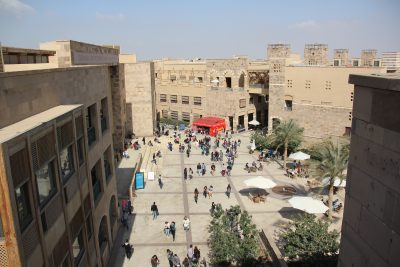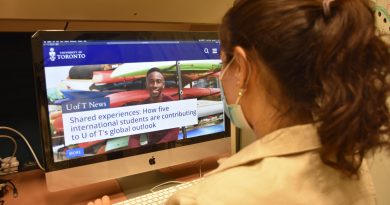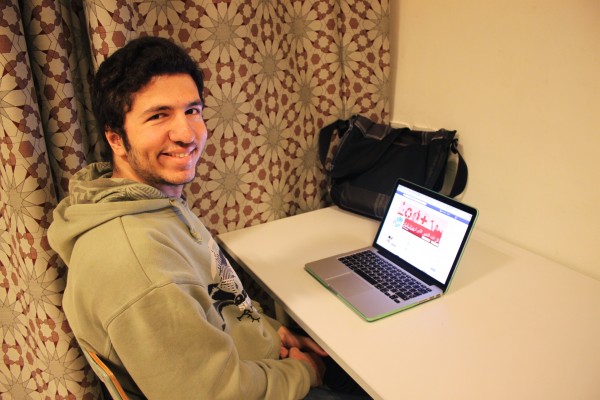UNESCO Introduces Global Citizenship to Education in Arab Region
By: Nourane Selim
Follow @nouraneselim97
The challenges of an increasingly interdependent world demand new ways of thinking and it is for this reason that global citizenship is being integrated in the educational process in many academic institutions.
As part of the civic and peace education initiative, the Graduate School Of Education organized a presentation titled ‘Promoting Global Citizenship Education In Post-conflict/Transitional Context: Insights From The Tunisian Experience’.
The presentation was divided into two parts: discussing the concept of global citizenship and examining the Tunisian case study.
“What I wish to deliver is that global citizenship should be seen as a part of learning because it is a learning process itself; to be empowered and skilled enough to solve global problems such as climate change,” Program Specialist at the United Nations Educational, Scientific and Cultural Organization (UNESCO) Gabriel El Khili told The Caravan.
Global Citizenship Education (GCE) is directly linked to the civic, social and political socialization function of education, and ultimately to the role of education in preparing the youth for the future.
El Khili added that promoting global citizenship education is about framing a new ‘post-20th century paradigm’, which captures how education can develop the knowledge, skills, values and attitudes learners need for securing a peaceful world.
The start of this move toward global citizenship involved reconceptualizing individual human relations with the community.
El Khili discussed four interrelated obstacles that hinder citizenship education in the Arab region: skills deficit, skills mismatch, value deficit and disempowerment.
Skills deficit refers to the insistence on traditional teaching methods, while skills mismatch points to the inverse correlation between education and employment.
Value deficit concerns the erosion of ‘social cohesion’, such as through conflicts and violence and finally, disempowerment is related to how children in the Arab World are not trained to manage their emotions and communicate them constructively.
Promoting global citizenship should follow a comprehensive approach, starting by steering policies around institutional capacities and schools in order to achieve a positive and tangible outcome.
“In order to tackle the problem of global citizenship, we need to think within that frame in order to give our actions a meaning,” he said.
“Because if you’re targeting policies without enhancing the capacity of institutions and reaching students, results will be meaningless.”
Implementing global citizenship education in the region is a difficult process because the Middle East and North Africa (MENA) is an economically and politically diverse area.
“We have advanced countries, fragile countries, developing countries and conflict-affected countries. But globally speaking, compared to other countries, as Arabs, we are still behind,” El Khili said.
The presentation zeroes in on the Tunisian case study to illustrate this point. A task force for citizenship education and human rights was set up in 2012 after the revolution, with the aim of mainstreaming citizenship education in the national curriculum.
“This teaching module aims to promote civic and peace education in the AUC curriculum and hopefully promote it on a national level so that we can achieve a similar experience to that of Tunisia.”
Nashwa Mohy El Din, a graduate student, was among the attendees who found the Tunisian case study extremely insightful.
“The case study showed us a real model that is implemented and discussed the main challenges faced during the implementation process, which I found really interesting.”
Another graduate student, Tamer Saeed, provided some constructive feedback about the lecture.
“I thought the presentation would’ve been better if it was more of a comparative study; what can be applicable and what are the major differences between both countries.”
Associate Professor in the Department of Comparative and International Education Nagwa Megahed organized several seminars, including El Khili’s.
The different seminars aim to promote values related to global citizenship and civic education as well as engage faculty members in the process of developing a teaching module that she is leading at AUC.




